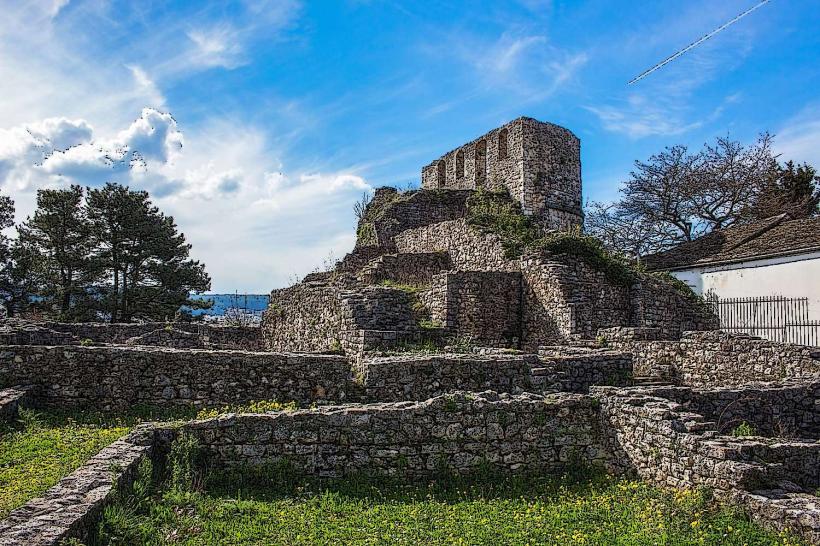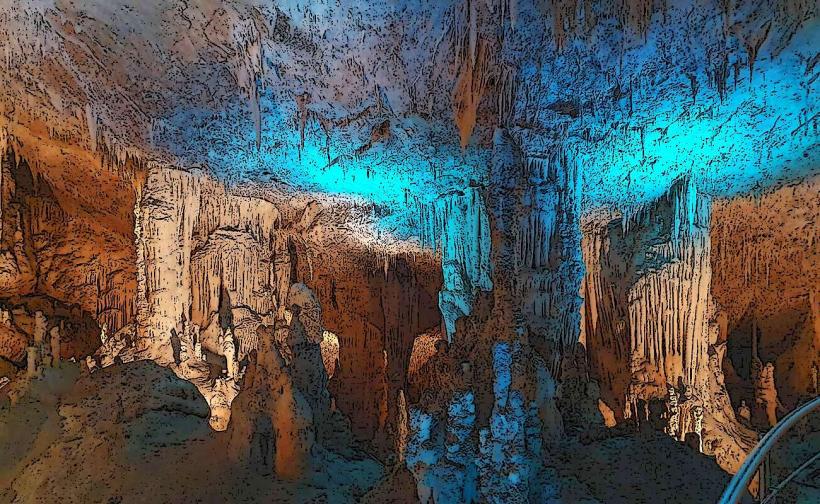Information
Landmark: Ali Pasha MuseumCity: Ioannina
Country: Greece
Continent: Europe
Ali Pasha Museum, Ioannina, Greece, Europe
The Ali Pasha and Revolutionary Period Museum is a private historical museum located on the Island of Ioannina (Nisaki) in Lake Pamvotis. It is housed in the monastic cell complex of the Monastery of Saint Panteleimon, the exact site where Ali Pasha, the Ottoman ruler of Epirus, was assassinated by Sultanate forces in 1822.
Visual Characteristics
The museum is a traditional two-story stone building following the local Epirotic architectural style, featuring wooden ceilings, thick masonry, and slate roofs. The interior is divided into small, interconnected chambers. A primary visual feature is the preserved bullet holes in the wooden floorboards of the upper room where Ali Pasha was shot. The exhibits include oriental furniture, ornate costumes, and long-barreled firearms (karyofilia) typical of the early 19th century.
Location & Access Logistics
The facility is situated on the northern side of the Island of Ioannina. Access is exclusively by water; small motorboats depart every 30 minutes (summer) or every 60 minutes (winter) from the Molos pier beneath the Ioannina Castle. The boat trip takes approximately 10–15 minutes. From the island's small harbor, a 5-minute walk through the paved village alleys leads to the museum entrance.
Historical & Ecological Origin
The museum occupies the former guesthouse of the Monastery of Saint Panteleimon, founded in the 15th century. Ali Pasha utilized the monastery as a final refuge during the two-year siege of Ioannina by the troops of Hurshid Pasha. The museum was established to preserve the artifacts of the "Lion of Ioannina" and the cultural atmosphere of the pre-revolutionary period in Greece. The island environment is a protected wetland, dominated by reeds and ancient plane trees.
Key Highlights & Activities
The Assassination Room: The primary chamber containing the floorboards damaged by the fatal shots fired from the floor below.
The Pipe of Ali Pasha: A famous 1.6-meter-long silver-and-gem-encrusted pipe belonging to the ruler.
The Krifo Scholio (Secret School): An exhibition area depicting the underground education of Greeks during the Ottoman occupation.
Personal Effects: A collection of silver-handled daggers, traditional Epirotic jewelry, and the silk garments of Ali Pasha’s wife, Kyra Vassiliki.
Infrastructure & Amenities
The museum includes a small ticket counter and a souvenir shop selling local handicrafts. 4G/5G cellular signals are stable on the island. Public restrooms are located near the island's central square, a short distance from the museum. The surrounding village offers numerous lakeside tavernas specializing in local delicacies like frog legs and eel.
Best Time to Visit
Optimal visiting hours are between 10:00 and 12:00 to avoid the peak afternoon humidity of the lake. The museum is especially evocative during autumn when fog often settles over Lake Pamvotis, enhancing the historical atmosphere of the island. It follows a seasonal schedule, generally remaining open until 20:00 in summer and 17:00 in winter.
Facts & Legends
According to historical accounts, Ali Pasha refused to surrender and was killed while defending the upper floor; his head was subsequently severed and sent to Sultan Mahmud II in Constantinople. A local legend claims that the ghost of Kyra Frosini-a woman Ali Pasha ordered drowned in the lake-still haunts the waters surrounding the island.
Nearby Landmarks
Monastery of Saint Panteleimon: 0.0km (Co-located)
Monastery of Philanthropenoi: 0.3km South
Monastery of Stratigopoulou: 0.4km South
Ioannina Castle: 2.5km West (via boat)
Silversmithing Museum: 2.7km West (via boat)





